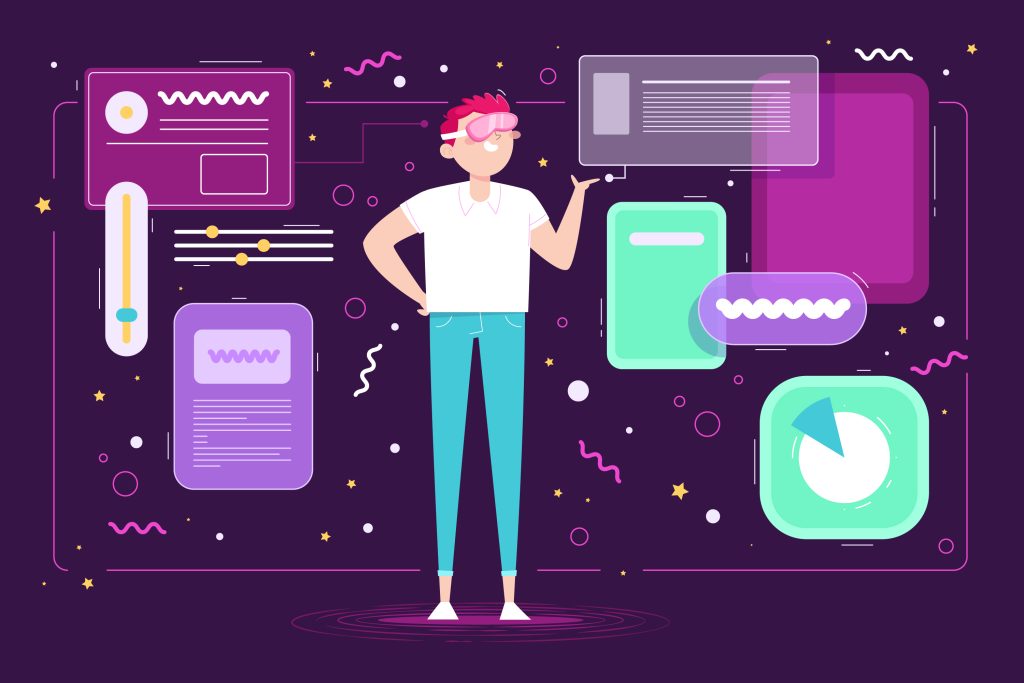It’s a common myth that B2B companies aren’t as focused on customer service as their B2C counterparts. According to an Accenture report, over 90 percent of B2B leaders believe that providing a great customer experience is the key to reaching their company’s goals.
Focusing on the customer experience is especially critical for B2B companies. They typically have fewer customers than B2C companies, making it imperative that none of them slip through the cracks. B2Bs also often sell large, complex, and pricier products or services, so more is at stake in a B2B customer relationship.
To nurture, develop, and maintain these important relationships, B2B companies must consistently provide stellar, hands-on customer service. If you’re not sure where to begin, we’ve got you covered. In this guide to B2B customer service, you’ll learn:
- What B2B customer service is
- How B2B and B2C customer service differs
- How certain industries use B2B customer service effectively
- What tools to use for delivering top-notch B2B customer service
What is B2B customer service?
A B2B (or business-to-business) company sells products or services to other companies. So, B2B customer service is the assistance or advice that a B2B provides to another business that’s using its product or services. The goal is to build trust in your company and what it has to offer so clients stick around for the long haul.
B2B customer service often involves communicating directly with client companies—answering their questions, helping them troubleshoot issues, or providing them with the resources they need to solve problems. This can be done through a help center, AI-powered chatbots, or customer service representatives, among other options.
When you are a B2B company, the customer service you deliver is considered B2B customer service. It’s that simple.
How are B2B and B2C customer service different?
The process for B2B customer service can differ significantly from B2C customer service. In both cases, you have a customer who is using your products and services. But the nature of the relationship is often more complex in a B2B context.
B2B customer service involves more stakeholders Instead of communicating with a single person, B2B companies must build and manage relationships with entire teams. And within those teams, turnover is inevitable, so B2Bs can’t rely on a strong relationship with only one person in each business unit.
B2B providers may also have to keep track of several teams using their product or service within one client company. Customer service agents would need to be equipped to juggle a multitude of relationships and priorities.
There might even be numerous people making purchasing decisions for one client company, which means B2Bs will likely have to jump through legal hoops or get permission from different stakeholders for contracts to be signed. To provide the best customer service, teams will need to be patient and understand the nuances of each client’s business.
B2B customer service representatives must be prepared to handle more complicated issues, too. While B2C customers usually want assistance with simple issues—like getting a refund or replacing a broken item—B2B clients generally want help with bigger, more complex problems.
For example, if a customer needs help troubleshooting an app, the customer service call is relatively straightforward. But a company integrating software throughout its operations requires a much higher level of support.
B2B customers have more urgent business needs
B2B customers rely on your company’s services or products to run their own businesses, so any hiccup with your offerings could negatively impact their bottom line.
Imagine that your company provides an email marketing application to other companies. If the application goes down and your clients can’t send out their marketing emails through the platform, that could set back their ability to do business. That would, in turn, create a ripple effect that could hurt the relationship between your company and your customers, who might lose trust in you.
This is why it’s essential for your B2B customer service team to have 24-hour technical support. It’s also helpful to offer robust self-service options, especially for simple tasks like billing and account maintenance. According to the Zendesk Customer Experience Trends Report 2021, 65 percent of customers want their online interactions to be quick and easy, so you’ll want to do everything you can to ensure a fast and seamless service experience.
B2B relationships last longer
B2Bs often enter long-term relationships with their clients. So, you’ll have many opportunities to forge close ties with client companies and foster loyalty.
“In my experience, I build the most personal relationships with B2B representatives,” says Sam Chandler, senior manager of customer success at Zendesk. “Even if I’m a consumer who’s obsessed with a brand, there’s not one person who I always turn to within that company. Maybe I always go to a specific store, but it’s not like ‘Joe’ is my guy—I talk to many different people within that brand.”
But in the B2B world, representatives from one company are building a relationship with representatives from another company to enable the adoption of a product or service. “In that case, I have more loyalty to the partnership I’ve built with the people within that organization,” Chandler explains.
The customer service team isn’t the only department that’ll interface with clients, either. B2B customers also interact with their account managers and customer success team—often more frequently than they do with customer support. It’s also possible that B2B customers will work with an implementation team.
Given that B2B clients form relationships with various teams, it’s critical for everyone within the organization to adopt a customer-centric mindset. Excellent B2B customer service is the responsibility of your entire company, not just the customer support team.
How 3 industries use B2B customer service effectively
There are many different types of B2Bs, and companies should tweak their customer service strategy to meet the specific needs of their clients. Here’s how B2B providers from three sectors approach customer service.
Finance
B2B finance companies operate in a highly regulated industry with strict rules about how their products and services are used and marketed. For that reason, customer service teams need to be very knowledgeable about the ins and outs of the finance world.
Businesses in the financial sector also have an increased imperative to be trustworthy and ethical because they deal with people’s money. That also means customer service representatives must be up to speed on topics like data privacy and data management.
“If you’re in a sector like the financial sector, where you’re controlling people’s livelihoods and their ability to live, your success depends on the trust and confidence you can instill at the customer service level,” Chandler says.
When training a customer service team, you can try an exercise to help them see things from a client’s point of view. For example, instruct them to place their wallets and phones on the table in front of them and put their hands behind their backs. Then, ask the representatives to buy you lunch.
The exercise can instill the agitation and frustration that potential customers might feel if they couldn’t access their money. It can also put the representatives in the client’s shoes and increase their desire to help them as quickly as possible.
That sense of urgency informs customer service agents’ work and their approach to their customers. They are more likely to hustle to solve a problem when they have a visceral understanding of the issues their customers face. In other words, empathy is a key component of the customer service strategy.
SaaS
SaaS stands for software as a service, and it’s one of the most common examples of B2B products. It usually includes the software that companies use to manage their day-to-day activities, such as customer relationship management (CRM), customer communication, team productivity, or project management.
SaaS companies tailor their customer service to their customers’ needs by ensuring their representatives know both the clientele and the product inside and out.
PipelineDeals, a software company that offers CRMs, leveraged RingCentral’s cloud phone solution to answer all its customer calls and train its support team. Using the software, agents were also able to address even the most complex customer question by calling in an expert from another team in real-time. That’s an example of one B2B company using another B2B to provide B2B customer service.
Chandler argues that SaaS companies have a unique ability to build long-term relationships with a human touch. In fact, she came to work for Zendesk because she witnessed how well the company ran its customer service team when she was a client.
“It never felt like they were waiting for the next renewal—it was always about what happened in between,” she says. “They won me over through outreach and bringing me into the fold, making me feel like I was part of a special gang. That’s how the relationship grew.”
Chandler also notes that SaaS companies must do an excellent job of providing long-term customer service and forming connections with their clients. The SaaS businesses that are most successful at B2B customer service are the ones that know how to develop and nurture those relationships, using a human touch and finding common ground with customers.
SaaS B2B companies may want to consider having a small group of representatives that always works with the same clients, giving them the opportunity to build bonds and gain an intimate understanding of each customer’s needs.
Level up your customer service structure Rethink your steps. Set your customer service team up for success.
Learn more
Marketing
In the marketing sector, there are various ways to offer customer service, including via help center content and blogs that answer common questions and provide guidance about how to use a product or service.
Marketing companies oversee and manage relationships with numerous customers, which gives them a unique ability to communicate with large groups of people at once. This is often done by sharing useful, engaging, and relevant content.
Chris Joyce, president of Union Jack Tools, said his company’s content is an extension of its customer service. Using Klaviyo’s marketing automation software, Union Jack Tools improves relationships with customers through communication.
“Communication is key for customer service, and we feel like Klaviyo is the right platform for that,” Joyce said in an interview. “We’ve gotten more comfortable creating email templates and campaigns, which we didn’t have any experience with coming in. It gives us the confidence to go in there and keep dripping those messages out, and it doesn’t take a lot of effort.”
Klaviyo, meanwhile, also prides itself on its ability to provide excellent customer service by communicating with clients online.
“At Klaviyo, being customer-first is one of our core values,” says Kate Walsh, VP of customer success and support at Klaviyo. “This means every team is thinking from the customer’s perspective, understanding the customer’s business, understanding their needs as a user, and solving the business problems they are facing.”






